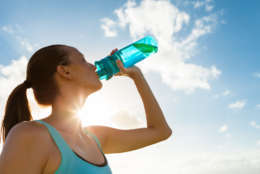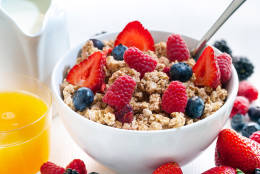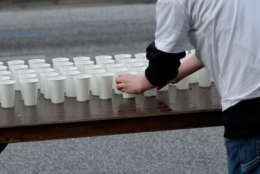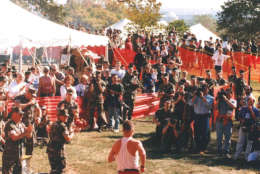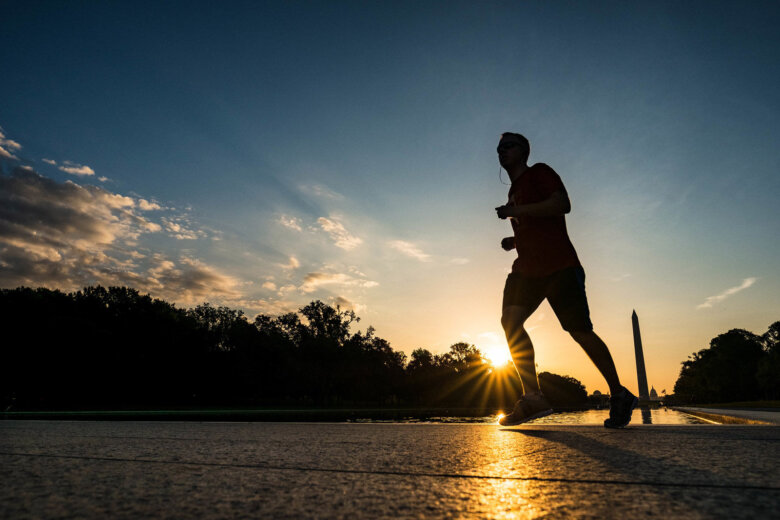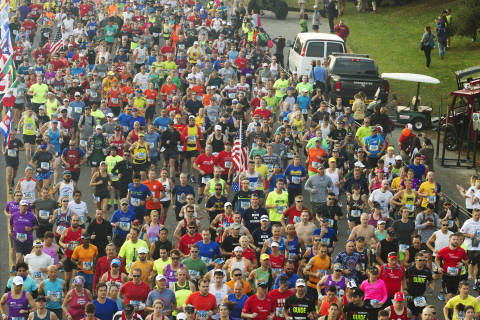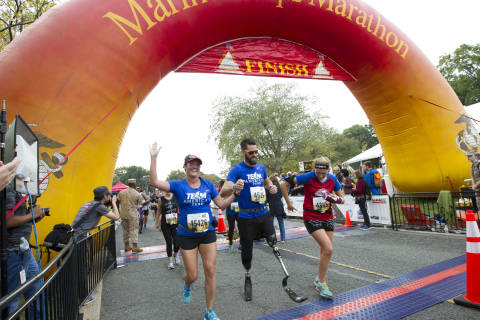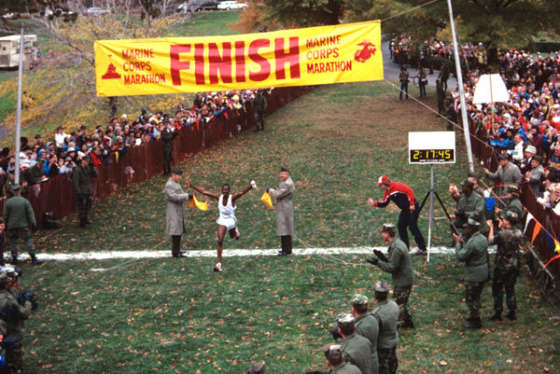
WASHINGTON — Training for a marathon consists of much more than logging miles. Fueling the body the right way can be crucial to a successful race, too.
Each person is different when it comes to diet, tastes and what their body can tolerate, but there are some guidelines that can help runners (and other athletes, for that matter) perform at their best, said Andrea Goergen, a bariatric dietitian at MedStar Washington Hospital Center.
As training for D.C.’s Marine Corps Marathon picks up speed, here are some tips from Goergen for how runners can eat their way to their best races.

Stick to a healthy, balanced diet
Whether you’re training for a 5K, 10K, half-marathon or marathon, a healthy diet with fruits, vegetables, whole grains, fiber and lean meats and proteins is important, Goergen said. However, those training for longer races, such as marathons, need more nutrients, she added.
“You’re going to want to increase your carbohydrate intake, which can help your muscles when you’re in the middle of physical activity. That’s where [your muscles] are going to get their energy,” she said.
Glucose from carbs helps prevent runners from “hitting a wall” — or running low on energy — during exercise. (Thinkstock)
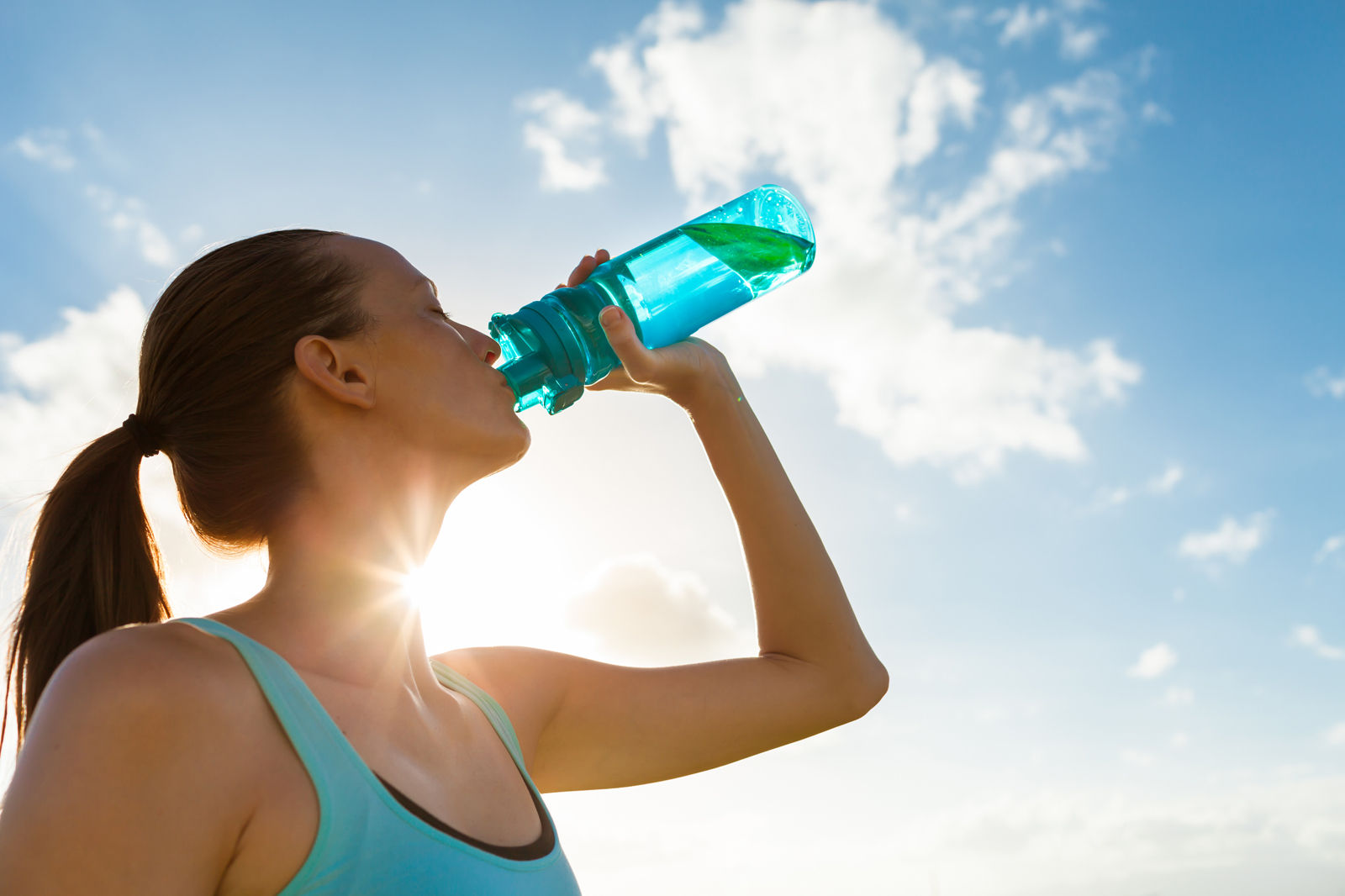
Hydrate
Hydrating before, during and after exercise is vital to runners’ overall nutrition. Ideally, runners should drink 10 ounces of water or a sports drink within two hours before exercise to keep the body hydrated, Goergen said.
Runners who are exercising for an hour or more may want to drink water during exercise, too. Sports drinks or sports gels are good options to get sodium and potassium, too, Goergen said.
So is there any magic number when it comes to how much runners should drink and when?
“A lot of folks are saying, ‘Go by your thirst now — when you’re ready to drink, have a drink,’” Goergen said.
Hydrating after a run or a race is vital as well, she said. Most people should drink 64 fluid ounces of water a day, but runners may want to step that up if they are losing a lot of fluid through sweat. (Thinkstock)
Time up the carbo-load
Pasta, bread, rice — these are just some of the carbohydrates that will give runners the energy they need to get through a race or training run. But timing up their consumption can give runners the biggest benefit.
Add more carbohydrates into your diet about three days before a marathon or longer training run, Goergen recommends. That gives your body more time to store the nutrients in the muscles as glycogen.
Goergen recommends 7 to 10 grams of carbohydrates per kilogram of body weight. Also, the day before the race, about 70 percent of your calories should be carbohydrates, she added.
“They don’t have to be pasta and bread. They can be higher-fiber whole grains like brown rice and things like that,” she said.
Cutting out fibers the day before is wise to avoid gastrointestinal distress, Goergen added. (Thinkstock)
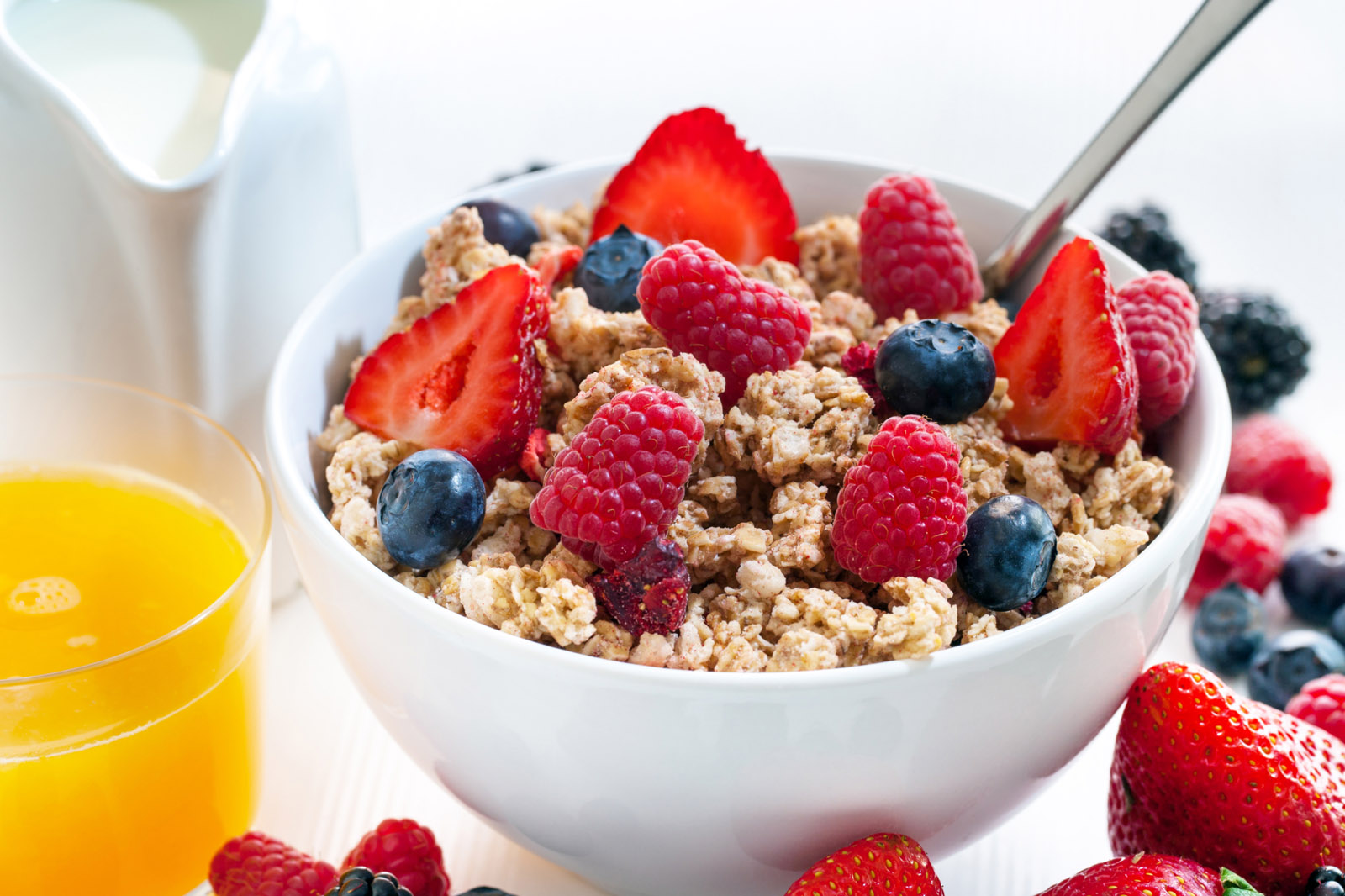
Eat what you know before a race
Every runner is different when it comes to what to eat before, during and after a race, but one thing is the same: stick to what you know.
“Everybody should know before they get to a race what works well for your body,” Goergen said. “Don’t try something new on race day.”
Sometimes with early-morning starts, it’s tough to figure out what works: You don’t want to run on a full stomach, but you need some fuel.
For pre-run and pre-race meals, runners should focus on getting low-fiber, easy-to-digest carbohydrates about two hours before a race. Bananas, peanut butter and jelly and sports drinks are often favorites. (Thinkstock)
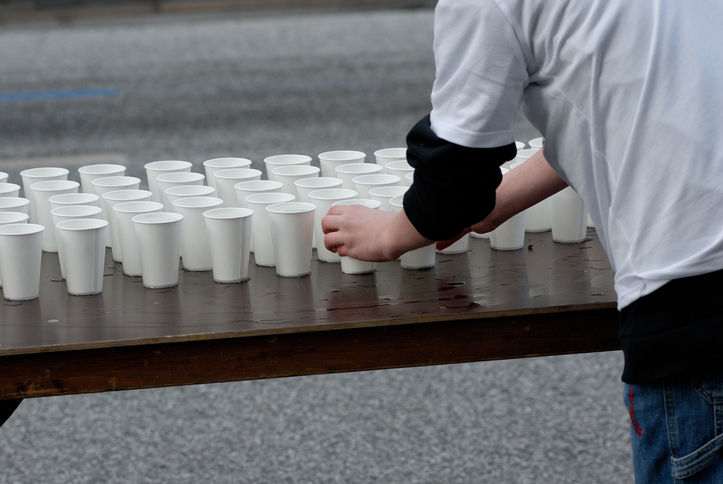
Plan for what to consume during a race
During a race, runners should focus on hydration and turn to sports drinks as a way to replenish electrolytes.
“Fluid and fluid-based carbohydrates are a great option while you’re running a race,” Goergen said.
Grab the sports drinks at a station when you can because during longer runs, they can help bolster glycogen levels, which can help with overall energy.
And runners may not need food at all, she suggested.
“You probably don’t want to eat much food during a race — your body is really focused on running and being physically active, so it’s going to divert attention away from digestive tract,” she said. (Thinkstock)
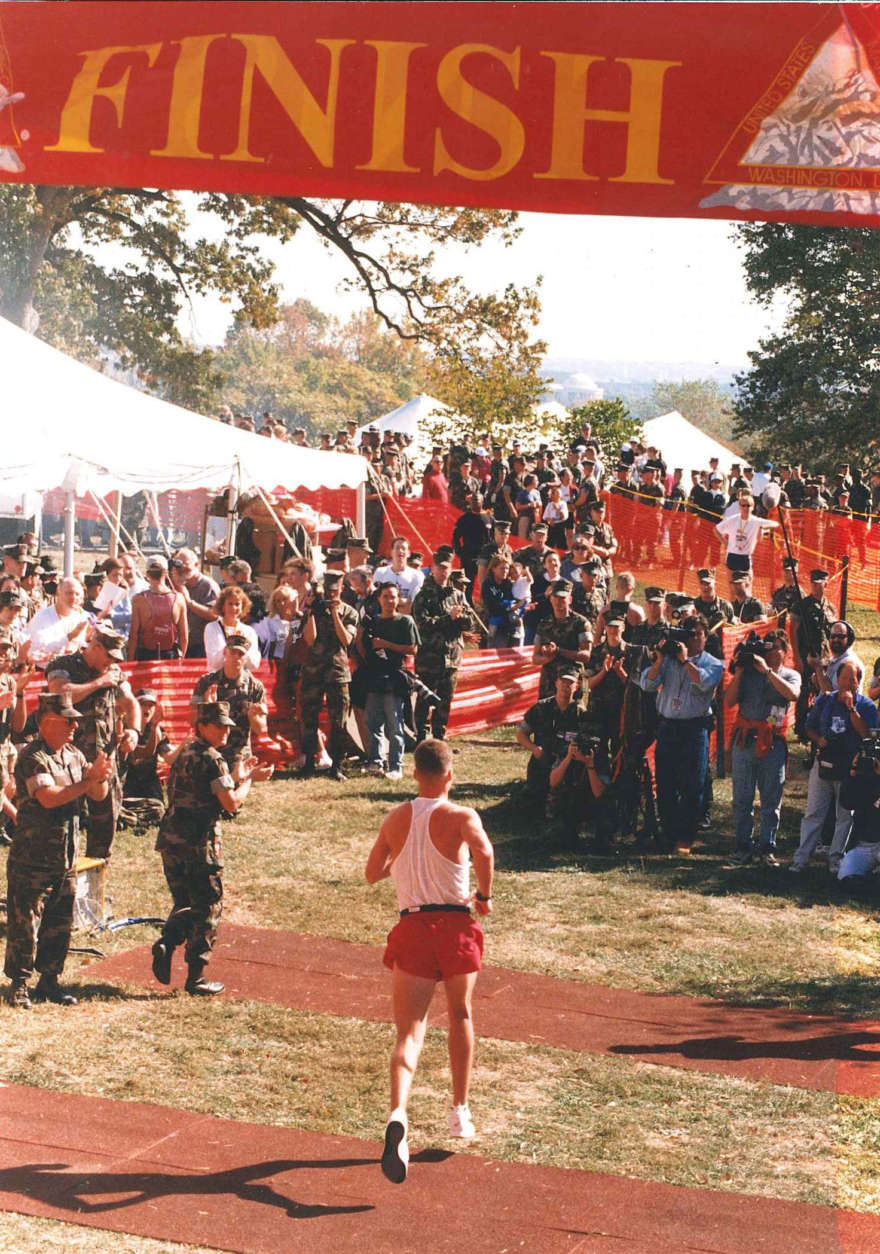
Replenish post-race
After a race, gorging on your favorite treats is tempting, but Goergen said it’s important to focus on replenishing glycogen stores and drinking plenty of water.
A sports drink, banana or bagel is a great way to recover and get food back in the system immediately after a race. Also, runners should drink so that their urine is pale yellow or clear, she said.
Make sure within two hours after a race to get in a good, solid meal, Goergen said. It should have “protein for helping with muscle recovery and carbohydrates to keep that glycogen stores being replenished and making sure your blood sugar stays in a good place.” (Courtesy Marine Corps Marathon)

